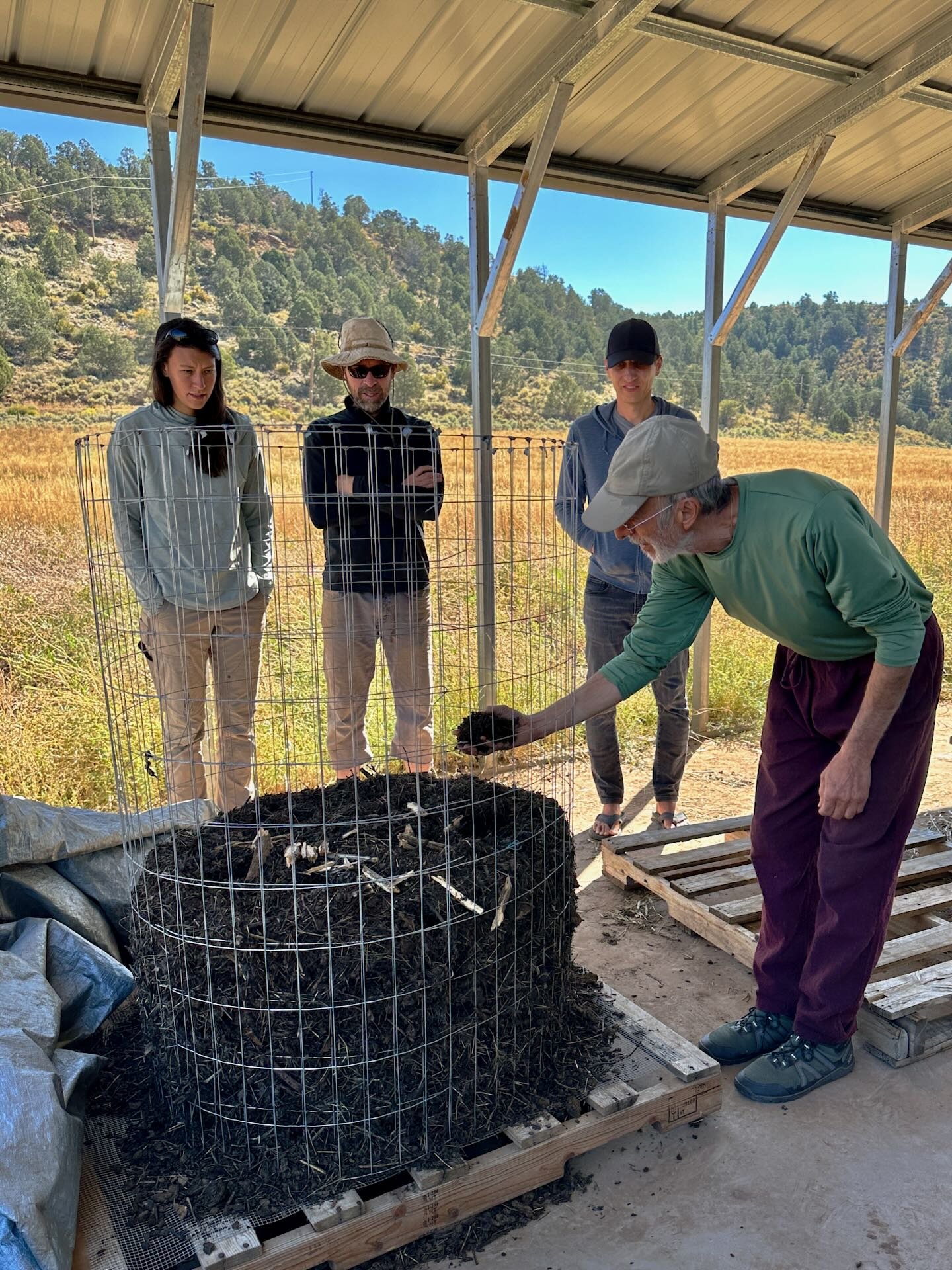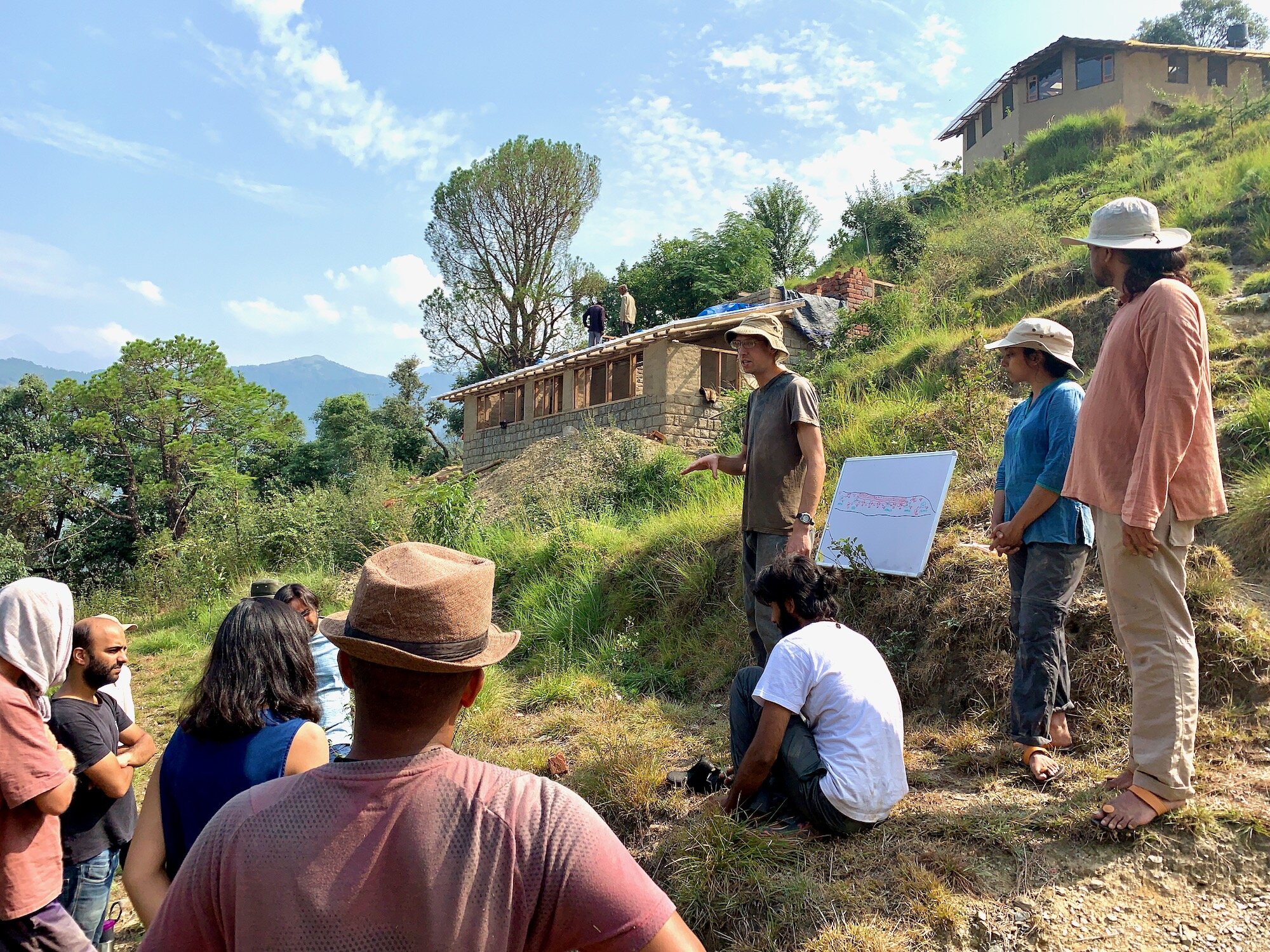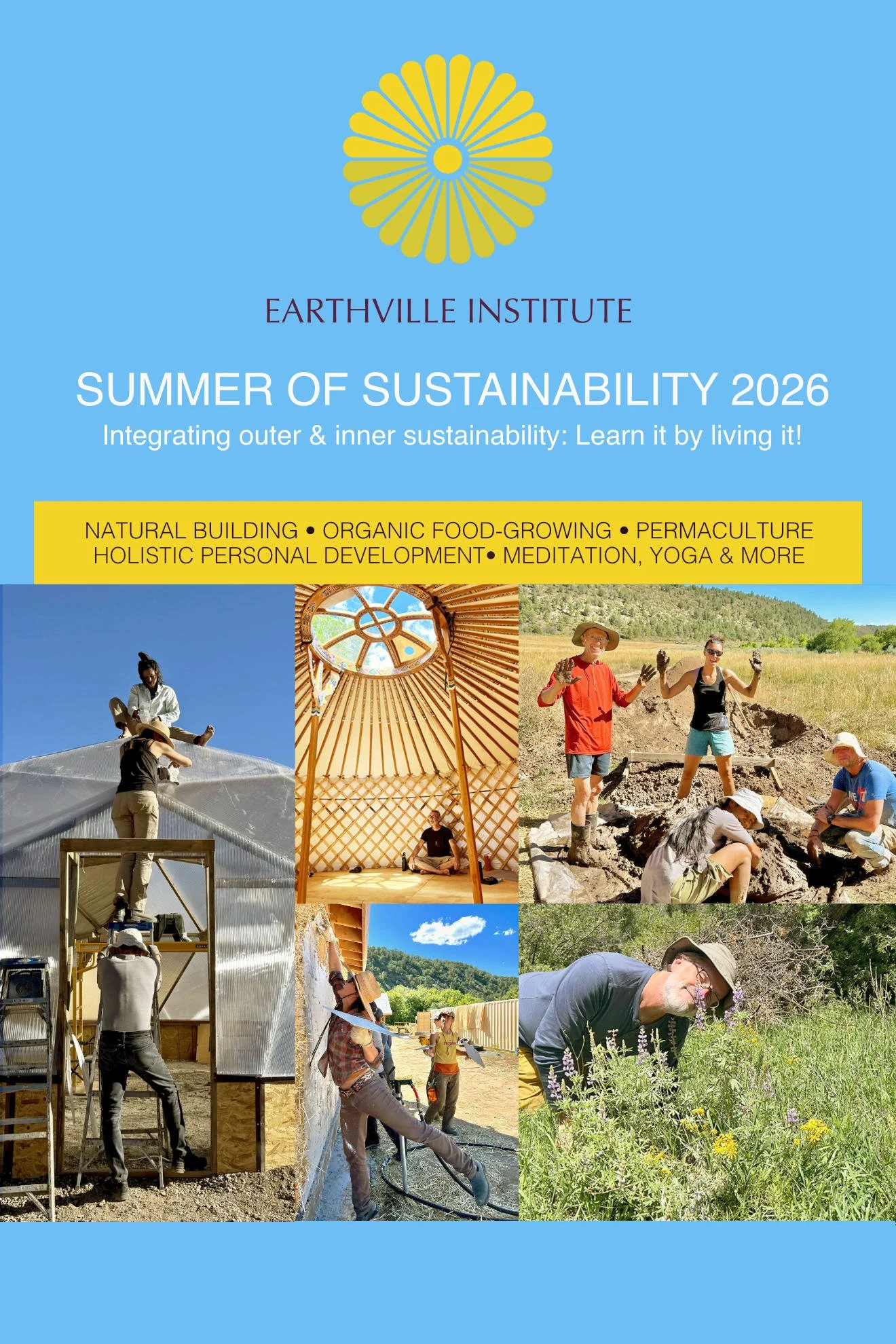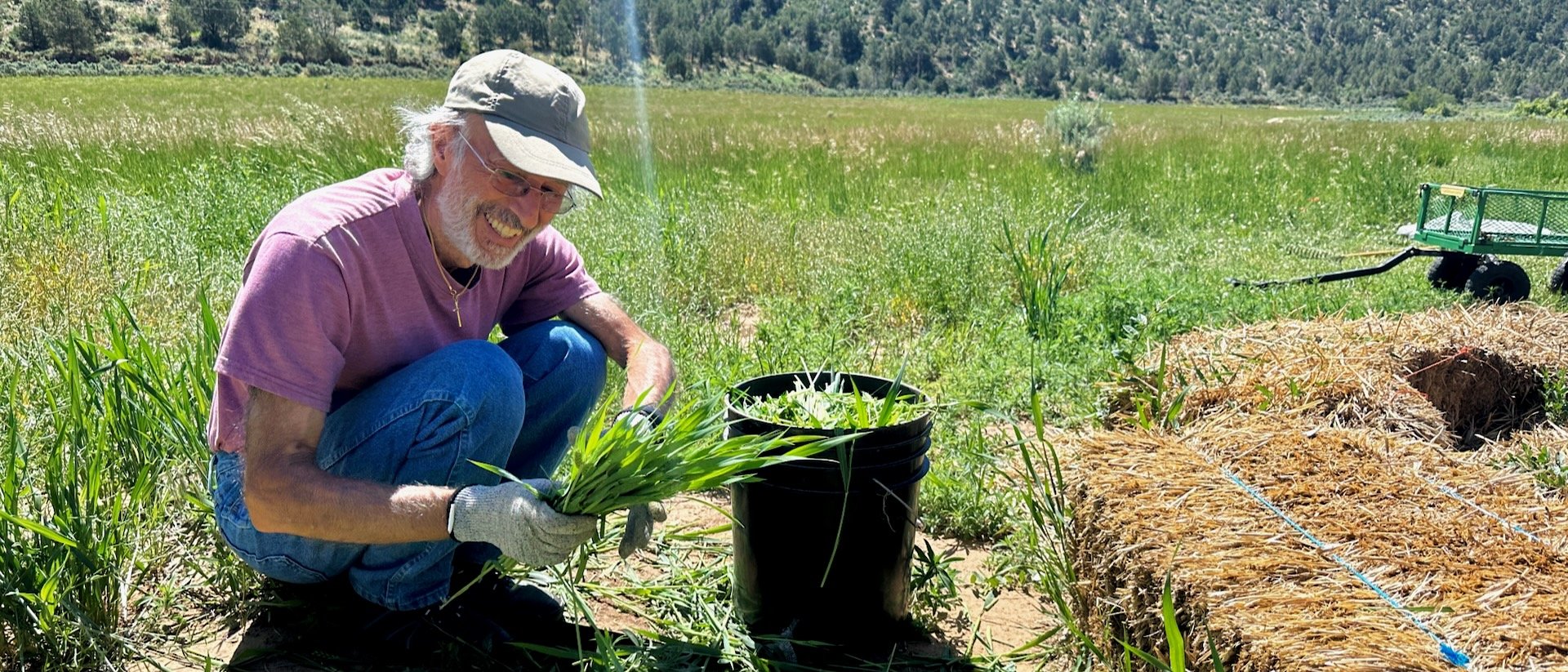
ORGANIC FOOD-GROWING
To promote healthy and sustainable food-growing methods and protect both the public health and the natural environment, Earthville Institute is working to create model organic gardens, and is transforming part of its campus into a showcase and real-world classroom for natural edible landscaping.
WHY ORGANIC?
The dangers of using unnatural chemical insecticides, herbicides, and fertilizers are many and severe, causing harm at every stage:
Damaging the environment in the areas surrounding chemical factories (including pollution of water bodies, soil, and air)
Polluting the air as these chemicals are transported across land and sea
Threatening the health of the farm workers who apply the chemicals (including cancer and other serious health risks)
Destroying the living food web in the soil (which then exacerbates other problems such as erosion, pests, etc.)
Damaging the health of the humans and other living beings that consume foods grown with toxic chemicals
Lingering toxicity as the chemicals remain in the ecosystem for years after use
When one investigates these issues thoroughly, it is clear that the only wise and sustainable choice for society is to grow all food organically.
BENEFITS
Human health: Pesticide-free foods are safer for humans and are often richer in nutrients thanks to healthier soil.
Animal health: Protect wildlife (including bees and other pollinators) from illness and death.
Water health: Preserve the soil’s natural function to purify groundwater.
Farmer safety: Protect farmers from harmful chemicals that cause serious diseases.
Biodiversity: Clean air, water, and soil helps preserve biodiversity and the balance of nature.
Money savings: Growing food organically with best practices can be far less expensive than chemical agriculture.
It tastes better! There’s a reason that many celebrated chefs choose organic produce grown in healthy soil by local farmers
EDIBLE LANDSCAPES
The basic idea of the edible landscape is that the built environment (our natural buildings) can be complemented by a cultivated environment (landscape design) that provides not only beauty and function but also food.
Imagine that you walk out of your home and the path leading from your door is lined with various visually appealing plants and trees that provide not only pleasing shapes, colors, textures and scents, but also food that you can simply pick and eat.
In such a place, one can walk outside and forage for a snack, a meal, an herbal infusion, or a medicinal remedy. And all of this can save money while also protecting nature, wildlife, and human health.
The edible landscape is one of the most efficient uses of land because it provides aesthetics, social space, and sustenance at the same time. It saves money while improving human health, creating beauty, and protecting the natural environment.
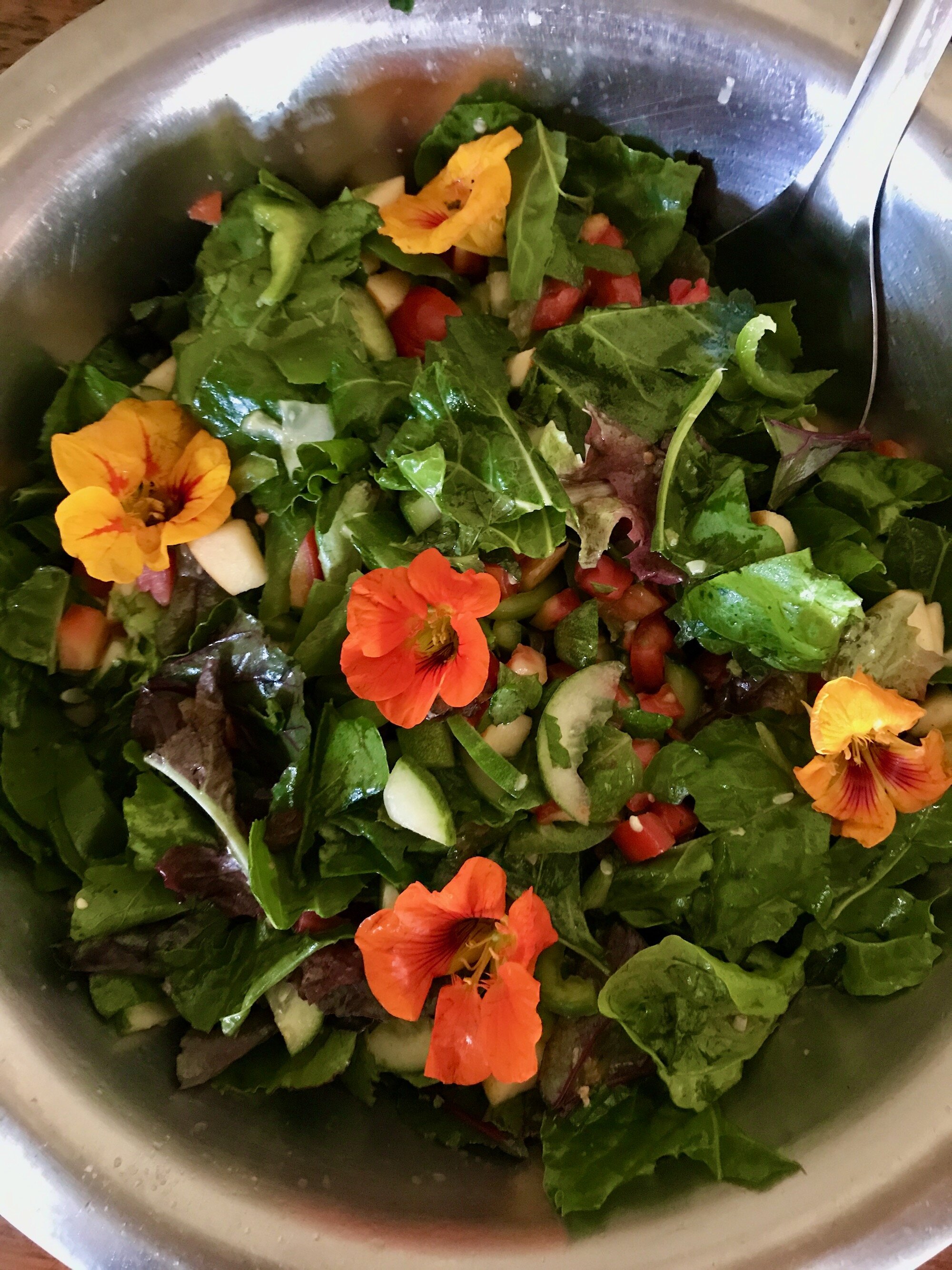
"If you have a garden and a library, you have everything you need."
— Marcus Tullius Cicero
ORGANIC FOOD-GROWING AT EARTHVILLE
Education through hands-on experience with a contemplative approach
It’s one thing to hear someone talk about organic alternatives, and another to experience it on a stroll through a thriving, high-yield organic garden and see (and taste) the immense potential for oneself. “Show me, don’t tell me” is the most effective educational method for many, and the best way to learn something practical such as this is to do it oneself first and then help others do it. Accordingly, Earthville Institute offers experiential education programs in high-yield organic farming .
And, as will all of Earthville’s programs, we take a deeper, holistic look at the subject, integrating systems thinking and contemplative reflection on nature and our place within it.
Our organic food-growing programs
Earthville Institute offers workshops and courses in various aspects of organic food-growing, including permaculture philosophy and practice, organic gardening workshops, and more. We also aspire to create green jobs and right livelihood with our farm in the future.
Those with the most passionate interest may wish to consider our Summer of Sustainability internship, a three-month residential service-learning program for people interested in how to achieve harmonious relationships between the built environment (shelter), the cultivated environment (gardens/farms/orchards), and the natural environment.
See our upcoming programs for details.
LEARN: COMPASSIONATE LIVING | NATURAL BUILDING | ORGANIC FOOD GROWING | MEDITATION & YOGA | PERSONAL & PROFESSIONAL DEVELOPMENT

